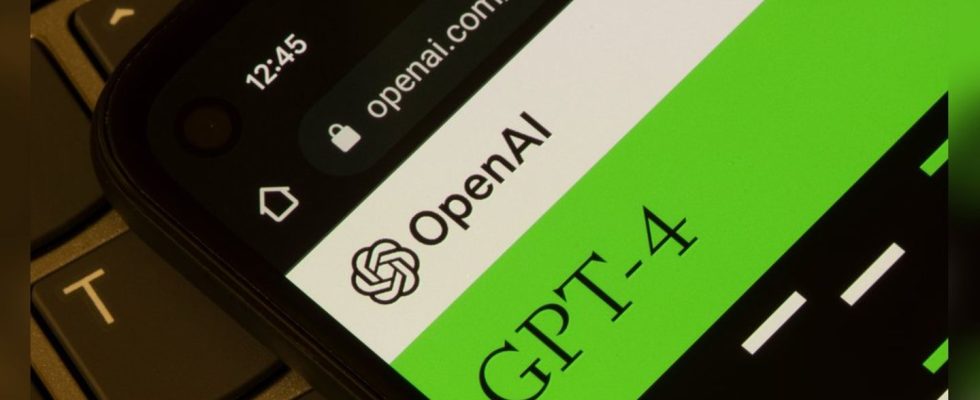Crazy costs
Will OpenAI soon have to fight for its existence?
Access to OpenAI’s ChatGPT-4 currently costs around 20 euros per month.
© Tada Images/Shutterstock.com
ChatGPT causes immense costs, the question of its profitability is getting louder. This is how OpenAI currently stands.
OpenAI itself explains the summer decline by the fact that fewer students are accessing ChatGPT. But not everyone follows this explanation. Numerous observers speak of a so-called cannibalization of various LLMs. Because numerous companies have developed their own systems based on ChatGPT and therefore no longer have to access OpenAI directly.
OpenAI currently pays that much
Added to this is the fact that OpenAI so far seems far from the profitability promised to investors. Annual sales of 200 million dollars were actually forecast for 2023, and by 2024 it should already be one billion. However, because the operation of ChatGPT is said to cost around $700,000 per day and OpenAI’s losses are expected to amount to $540 million by May 2023, these goals currently seem a long way off. Microsoft’s cash injection of ten billion dollars is currently carrying the company.
Due to the explosion of interest in AI systems, ChatGPT is no longer the most interesting system for all users. In particular, the “Llama” developed by Meta has met with a positive response, because the tool, which is intended to help developers with programming, is, in contrast to ChatGPT, an open source AI. The further development “Llama2” developed jointly by Meta and Microsoft is already available for those interested.
In addition, Google is likely to start the next attempt this year to put ChatGPT and thus OpenAI under further pressure. Observers of the scene are already speculating about the release of a system called “Gemini”. According to an insider report, this should enable Google to generate digital content that the competition cannot. Accordingly, Google wants to enable the generation of images in particular, similar to the “Midjourney” or “Stable Diffusion” systems.
Several lawsuits against OpenAI over copyright issues
OpenAI is currently under further pressure because several major media players such as the “New York Times” or the image portal “Getty Images” are either suing the company or are considering a lawsuit. The accusation is that ChatGPT was trained using image and text data from the company. In the case of the “New York Times”, according to the US medium “NPR”, there have been ongoing negotiations for months about appropriate compensation from OpenAIs. “Getty Images”, on the other hand, is already complaining because ChatGPT was trained, among other things, on the basis of its database of twelve million images.
As if OpenAI and its CEO Sam Altman (38) wanted to prove to the world that the prophecies of doom about impending bankruptcy are unfounded, OpenAI has announced its first-ever company takeover. The Californian start-up Global Illumination will contribute to all OpenAI content in the future. Thomas Dimson, Tylor Gordon and Joey Flynn only founded Global Illumination in 2021 and have previously worked for industry giants such as Facebook, YouTube, Instagram and Riot Games. However, the parties agreed not to disclose the purchase price. It remains to be seen if they can soon turn things around together with OpenAI and possibly ChatGPT 5, which is still awaiting an official announcement.

